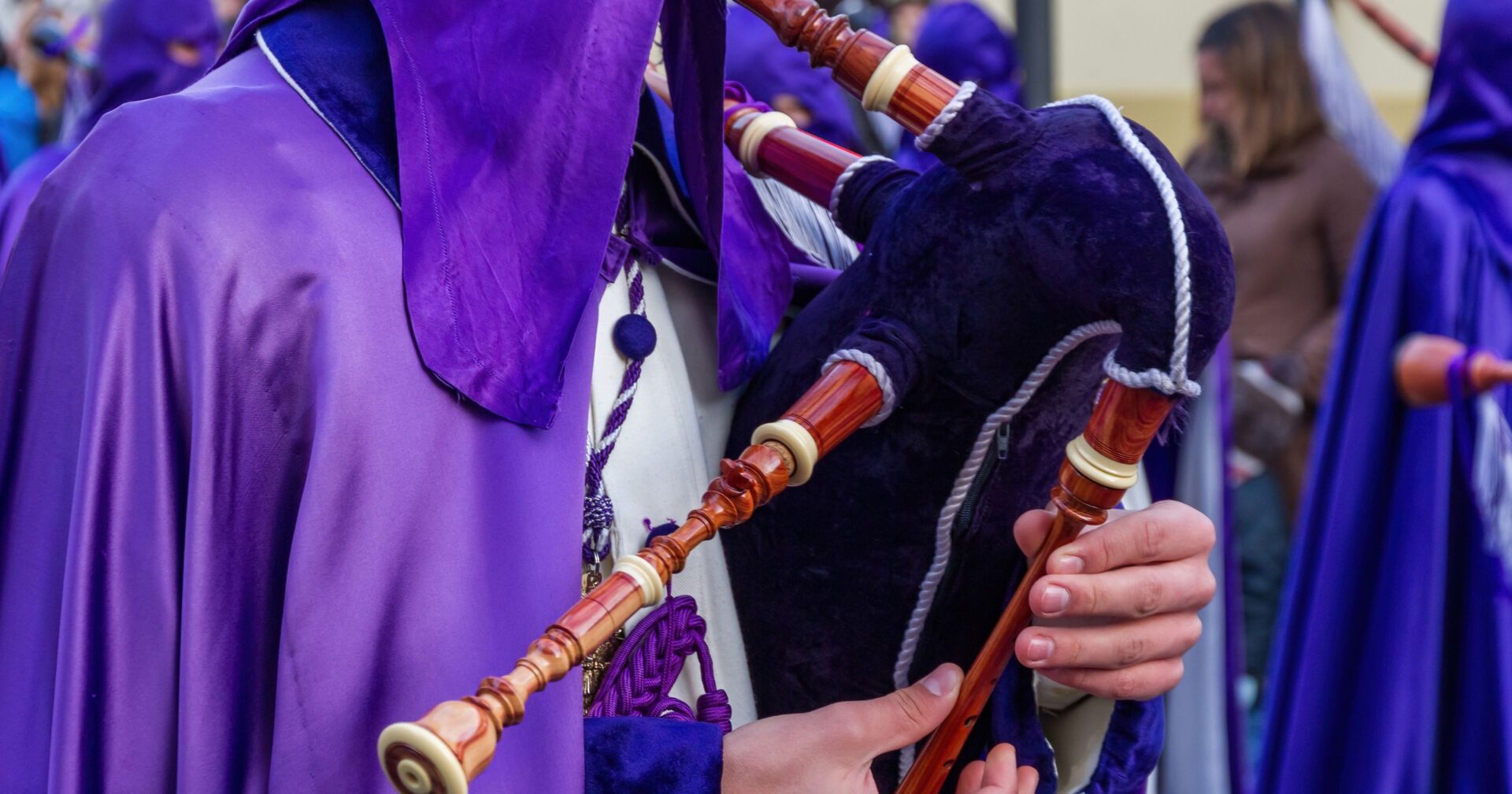Have you ever heard the mesmerizing melodies of a Bagpipe Mass, a tradition that has echoed through the halls of Spain’s churches since the 1400s?
The Bagpipe Mass, or “Misa de Gaita,” intricately weaves the Church’s universal Latin texts with the liturgical tunes of the old plainchant. When performed alongside the bagpipe, traditional sections of the Mass (Kyrie, Gloria, Credo, Sanctus, and Agnus Dei) come to life, embellished with unique twists, ornaments, and nuances.
Imagine moments known as “intermissions,” where the bagpipe takes center stage, often accompanied by the rhythmic pulse of a drum. These intermissions, a distinctive feature of the Bagpipe Mass, can be performed during various stages of the service, and may even include the traditional “Marcha Real” or regional hymns.
Despite sharing a common origin, the Bagpipe Mass showcases an array of regional variations. From the beautifully preserved tradition in Parres and La Pereda to the frequently held masses in Salas, this custom is a vibrant testament to Asturian culture. In recent years, concerted efforts have been made to revive the tradition in parts of Asturias where it had almost disappeared.
Presided over by distinguished figures like Archbishop Jesús Sanz of Oviedo, and spearheaded by individuals such as Ángel Medina, a professor of Musicology and author of the book “La misa de gaita,” the revival of this tradition has been nothing short of inspiring.
The Bagpipe Mass, a Latin Eucharist accompanied by the bagpipe, is more than just a religious ceremony. Its melodies, drawn from the ancient plainchant and intertwined with Asturian tunes, evoke a profound sense of history and community. Despite facing a gradual decline over the years, the Bagpipe Mass has managed to persist, serving as a symbol of resilience and a testament to the enduring power of tradition.
The Valdés Salas Foundation is at the forefront of preserving this unique aspect of Asturian liturgical tradition. They aim for the Bagpipe Mass to be recognized as a UNESCO World Heritage, and are keen on spreading its practice throughout Asturias and beyond, a testament to the global relevance of this local tradition.
In the face of modernity, the Bagpipe Mass stands as a stirring fusion of sacred ritual and cultural heritage. Its melodies resonate with fervor, silence, and respect, creating an immersive experience that transcends the boundaries of a typical Mass. As the profound notes of the bagpipe fill the room, one cannot help but feel a deep connection to a rich past that continues to shape the present.
Listen below to a bagpipe rendition of Gloria:














